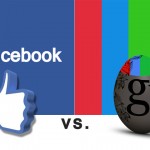The next most popular site we visit to gather information, next to hitting Google, is undoubtedly the Wikipedia, the online encyclopedia. It is THE place to get tolerably reliable, basic information about anything under the sun – from its history, geography, the science behind it, and so on. It is like a modern day (not too modern either) dictionary. Widely used and available in different languages, the Wiki could well be termed as a substitute for a search engine. Since its introduction, it has seen a steep increase in its popularity, and continues to support the internet users. This has been further boosted by Google encouraging Wiki’s data over other relevant data in its search engine result page.
The website has helped billions all around, and it explains the Wiki’s becoming a favorite among all internet users. It is essentially a database with facts and figures, and simultaneously allows creation of new database by letting users upgrade and provide updated information about the topic. With a very simplistic and modest look, the Wikipedia uses a simplified version of markup language, done with the help of an efficient text editor. The web pages are supported by highly versatile wiki software which is the result of a strong collaborative approach.
The Wikipedia is constantly being updated as we speak, by users all around the globe. And one can find any information under the sun! It can almost be termed as a dictionary of sorts. One of the most important features is that it is freely editable by any user. Users feel free to create and simultaneously edit web pages as per requirement. The web page follows a simple text syntax format for the creation of new crosslinks or pages between various internal pages. This allows all contributions to be uploaded or edited as per requirement. In certain cases results may appear almost simultaneously.
Wikis are the most popular and are ranked among the most favorite on the search engine rankings. So much so that in order to secure top positions in the search engine pages, more and more users are including the Wikipedia apart from the social media sites to market products and services to ensure the web pages are search engine optimized.
The other key feature is that Wikis nurture a culture of not only meaningful but also equally relevant topic associations between various pages. A wiki page is generally interconnected with the help of various kinds of useful hyperlinks. This allows the creation of page links on a spontaneous basis and the existence of target pages if any. This website is crafted meticulously to allow use by the most casual and less informed visitors.
Despite the above user-friendly features and growing popularity, there is a serious drawback in the haphazard way the information is provided. It allows non-linear, complex, evolving and networked text interaction and argument. Since the content is updated by the users themselves, there is no one to judge the reliability of the information provided. A more regulated approach in terms of the data uploaded will make the Wiki even more dependable. However, the popularity of the Wikipedia, or the Wiki, as we call it, is here to stay.
Irrespective of whether or not we see the Wikipedia in a new avatar or a more controlled operation, users continue to use the Wikipedia whenever trying to look up something or the other on the net.









